20+ Years Experience
Specialist Resin Flooring Installers

Enquire Today For A Free No Obligation Quote
Weighing the Pros and Cons: An Honest Review of Resin Flooring
Resin flooring has gained popularity in recent years as a durable and versatile flooring option. Before making a decision, it is essential to consider the advantages and disadvantages it offers. This honest review will provide an in-depth analysis of resin flooring, helping you make an informed choice.
The Pros of Resin Flooring
The Cons of Resin Flooring
Factors to Consider Before Choosing Resin Flooring
By carefully evaluating the pros, cons, and individual factors, you can make an informed decision regarding the suitability of resin flooring for your specific needs.
Resin flooring is becoming increasingly popular worldwide. In this section, we will discuss the numerous advantages it offers. These include its impressive durability and long lifespan, as well as its excellent resistance to chemicals. Resin flooring also provides a wide range of customization options, making it suitable for any aesthetic preference. Additionally, its low maintenance requirements and hygienic properties make it a top choice in the field of interior design. Prepare to learn more about why resin flooring is the ultimate flooring solution.
Resin flooring is renowned for its durability and longevity, making it a popular choice for a variety of settings. In terms of durability and longevity, there are several key points to consider:
The durability and longevity of resin flooring make it a reliable option for those seeking a long-lasting and low-maintenance flooring solution.
Chemical resistance is an important factor to consider when selecting resin flooring. It offers protection against spills and chemical exposure in different settings, such as industrial and commercial spaces. Here is a summary of the chemical resistance of resin flooring:
| Type of Chemical | Result |
| Acids | Resistant to most acids, preventing damage and corrosion. |
| Alkalis | Highly resistant to alkalis, ensuring long-lasting protection. |
| Solvents | Great resistance to solvents, preventing degradation of the flooring. |
| Oils and Greases | Excellent resistance to oils and greases, making cleaning easy. |
| Chemical Spills | Resin flooring provides a barrier, preventing chemicals from seeping into the subfloor. |
Fact: The chemical resistance of resin flooring is achieved through the use of high-quality materials and special technology, ensuring its durability and resistance to various substances over time.
Customization options are a major advantage of resin flooring. It offers endless possibilities in terms of design, colour, and texture. This flexibility makes it a popular choice for both commercial and residential spaces. Different patterns, logos, or specific images can be incorporated into the flooring, adding a unique touch to any space. Resin flooring can be tailored to match the overall aesthetic of the environment, whether it’s a sleek and modern look or a more traditional style. This level of customization ensures that the flooring seamlessly integrates into the design scheme of any space, making it a versatile and visually appealing option.
Resin flooring is renowned for its easy maintenance, which makes it an appealing choice for both residential and commercial spaces.
|
Fact: Resin flooring requires minimal maintenance, which saves time and effort in the long run.
Resin flooring offers several hygienic properties that make it a popular choice for various settings. Here is a list of these hygienic properties:
These hygienic properties of resin flooring make it an ideal choice for healthcare facilities, food processing areas, laboratories, and other environments where cleanliness and hygiene are of utmost importance.
Resin flooring has some drawbacks that are worth considering. This section will discuss the cons of this popular flooring choice and examine some key aspects. We will look at the initial installation cost, the potential slipperiness when wet, the possibility of discoloration over time, and its vulnerability to scratches and dents. It is important to be aware of these factors before deciding on resin flooring for your space.
The cost of installing resin flooring initially can vary depending on several factors. Here is a breakdown of the cost considerations for resin flooring:
| Factors | Considerations |
| Size of the Area | A larger area will require more materials and labour, increasing the overall cost. |
| Type of Resin | There are different types of resin available, each with varying costs. |
| Surface Preparation | If the existing floor needs repair or extensive preparation, it can add to the installation cost. |
| Additional Coatings or Finishes | If you require additional coatings or finishes, it will increase the overall cost. |
| Installation Complexity | If the installation requires special techniques or equipment, it may come with an additional cost. |
Considering these factors, it is important to budget accordingly for the initial installation cost of resin flooring. Keep in mind that while the upfront cost may be higher, resin flooring offers long-lasting durability and low maintenance, making it a cost-effective investment in the long run.
One potential drawback of resin flooring is its slipperiness when wet. This can be a safety concern, especially in areas that are prone to spills or wet conditions. It is crucial to consider this factor before choosing resin flooring, particularly in spaces where slip resistance is of utmost importance.
| Safety Concern | Slipperiness When Wet |
| Description | Resin flooring can become slippery when it comes into contact with liquids, increasing the risk of accidents. |
| Solutions | Opt for a resin flooring option that includes anti-slip additives, or consider alternative flooring materials for areas that are prone to moisture. |
When choosing resin flooring, it is vital to prioritize safety and take into account the specific requirements of the space in order to mitigate the potential risks associated with slipperiness when wet.
Over time, resin flooring may have the potential for discolouration due to various factors. Exposure to sunlight, chemicals, and heavy foot traffic can contribute to the fading or yellowing of the floor surface. Advancements in resin technology have led to the development of UV-stable and colourfast options, minimising the risk of discolouration. Regular maintenance and proper cleaning methods can also help preserve the appearance of resin flooring. Considering these factors and opting for high-quality materials and professional installation can help mitigate the potential for discolouration over time, ensuring a long-lasting and visually appealing floor.
Similarly, it’s worth mentioning that ancient civilisations used natural pigments to colour their floors, often resulting in discolouration over time. The use of resin flooring, with its durability and colourfast properties, has revolutionised the flooring industry, providing a long-lasting and aesthetically pleasing solution for both residential and commercial spaces.
Resin flooring, although widely chosen for its durability and options for customization, is susceptible to scratches and dents. Here are some factors to consider regarding this issue:
While resin flooring provides numerous advantages, it is important to consider its proneness to scratches and dents in order to determine its suitability for your specific requirements.
Factors to Consider Before Choosing Resin Flooring
Before we delve into the pros and cons of resin flooring, it is important to first discuss the crucial factors that should be taken into consideration when making this decision. These factors include the location and intended use of the flooring, budget and maintenance costs, as well as safety considerations. Each of these sub-sections will provide valuable insights into key aspects that can impact your choice of resin flooring. Let us now explore these important factors in order to help you make an informed decision.
When evaluating resin flooring, it is essential to assess the location and intended use of the space. Here are some factors to consider:
By considering these factors, you can make an informed decision about which type of resin flooring is the right option for your location and intended use.
Budget and maintenance costs to be considered when choosing resin flooring for your space. Here is a breakdown of the expenses involved:
| Expense | Description |
| Installation Cost | Resin flooring can cost more initially compared to other flooring options due to the use of high-quality materials and special technology. |
| Maintenance Costs | Resin flooring generally requires minimal maintenance, saving you money in the long run. Regular cleaning and occasional resealing, if necessary, are the primary maintenance expenses. |
| Budget | Consider your budget and determine if resin flooring aligns with your financial capabilities. It may have a higher upfront cost but offers long-term durability. |
Pro-tip: Before making a decision, evaluate the long-lasting protection and unique properties resin flooring offers, taking into account both initial costs and long-term maintenance expenses.
When considering resin flooring, it is important to take safety considerations into account. This includes assessing the risk of slipperiness when wet and potential damage from wear and tear. It is also crucial to ensure that the resin flooring is heat resistant and meets safety standards for the intended use, whether it is for a commercial or domestic setting. Proper installation is paramount to avoid faulty installations and ensure the flooring is safe to use. Keep these safety considerations in mind to make an informed decision about resin flooring. Pro-tip: Always consult with a professional to assess safety requirements for your specific project.
Resin flooring offers several advantages, including its durability, easy maintenance, and versatility in design options. It is resistant to wear and tear, can withstand water and other liquids without absorption, and is easy to clean. Resin floors create a seamless and glossy surface that is suitable for both residential and commercial spaces.
Yes, resin flooring can be used for both interiors and exteriors. It is a versatile flooring option that can be applied in various settings, including homes, offices, showrooms, and places of entertainment. It offers long-lasting protection and can withstand the elements when used outdoors.
Yes, resin floors are particularly suitable for high-traffic commercial activities. They are made of high-quality materials that are resistant to wear and tear, making them a durable choice for large companies and pharmaceutical companies. Resin floors can withstand heavy use and impacts without wearing down.
When choosing resin flooring, it is important to consider the design options that best suit your needs. Resin floors offer a seamless and glossy surface with a translucent effect, but they can also be used as a paint to cover old tiles or cement, allowing for the choice between a continuous view or preserving the tile joints. Additionally, resin floors come in various finishes and can be customized to fit your aesthetic preferences.
Yes, resin flooring is known for its fast installation. The application process can be difficult, so it is recommended to hire experts for the job to ensure a smooth and even surface. However, once the installation is complete, resin floors are easy to maintain and require minimal renovation.
While resin flooring offers many benefits, there are a few potential risks to consider. Resin floors can be slippery when wet, which can pose a safety risk. It is important to install a skid-resistant layer to mitigate this issue. Additionally, if not properly installed, resin floors can be prone to cracking and uneven layers, compromising the integrity of the surface. Resin flooring can also be sensitive to ultraviolet light, affecting its appearance in outdoor settings.
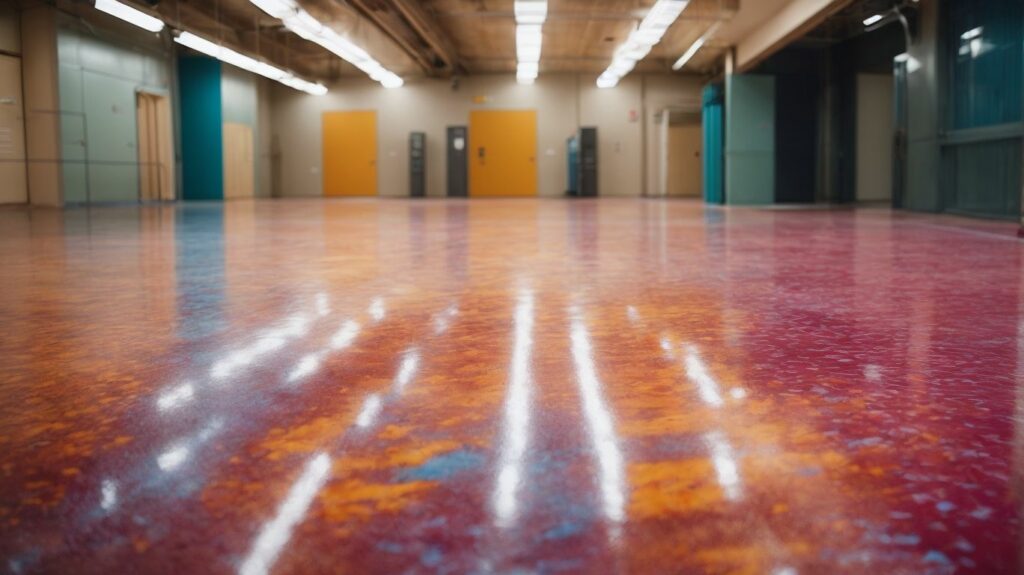

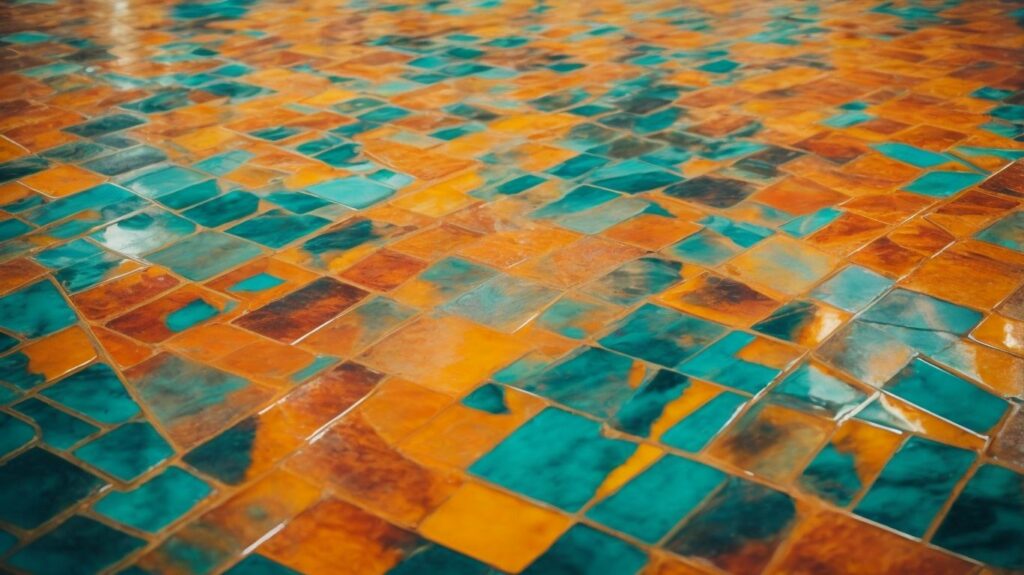
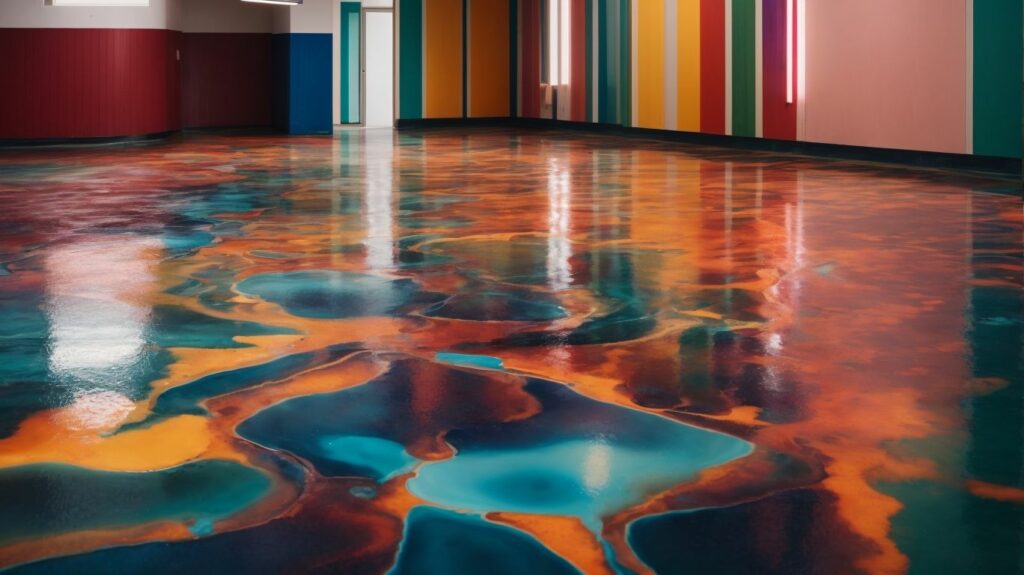


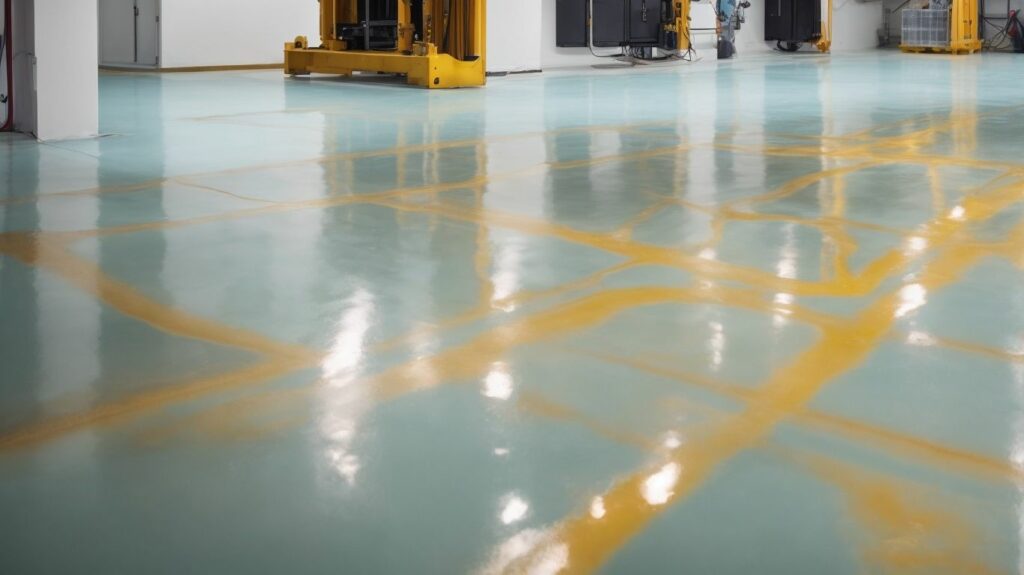
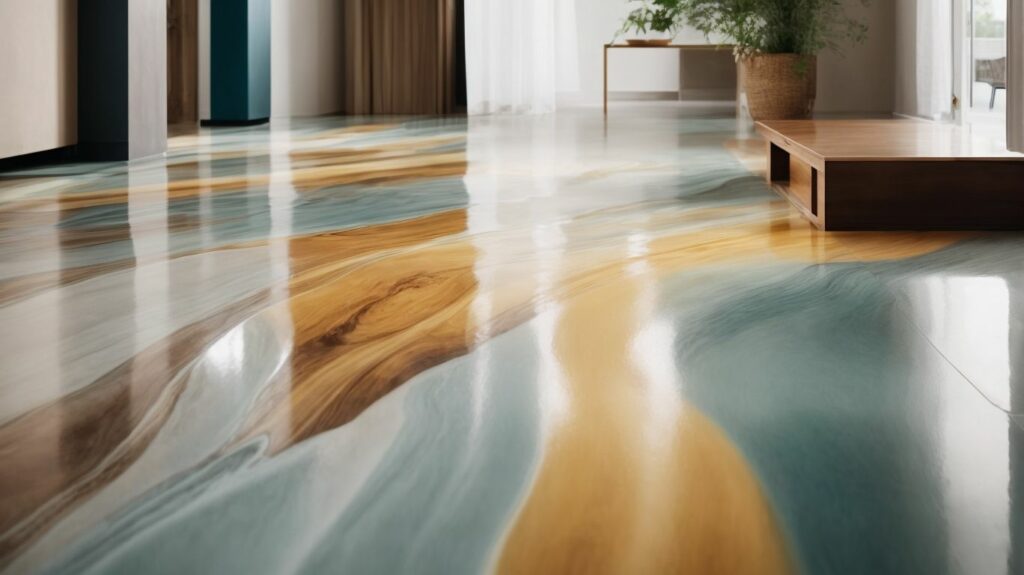

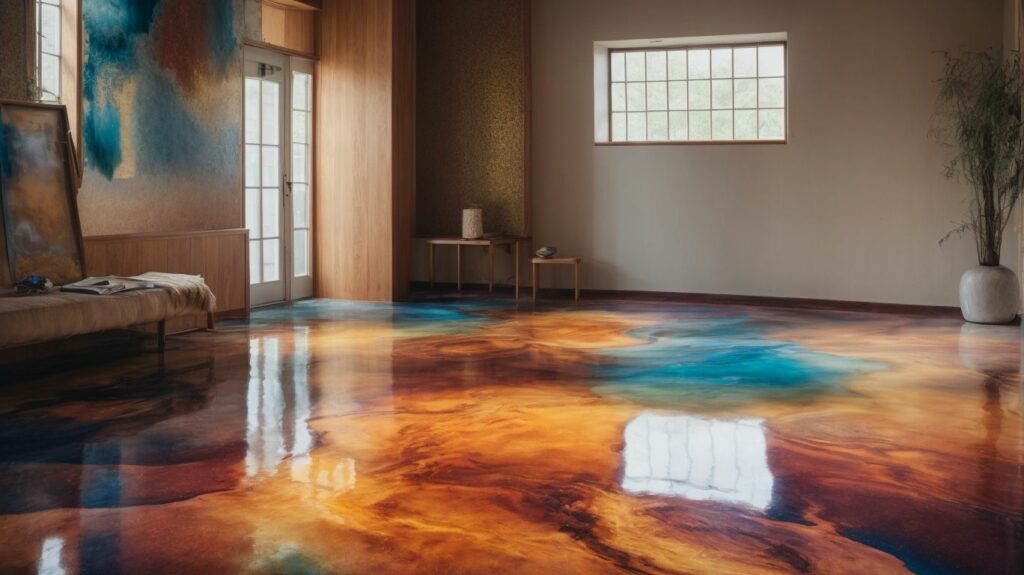
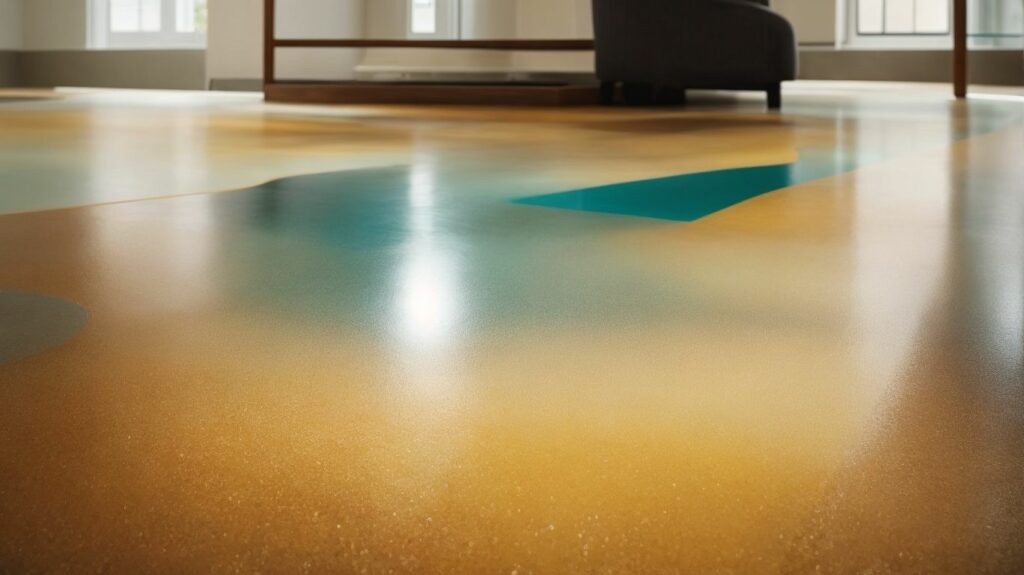
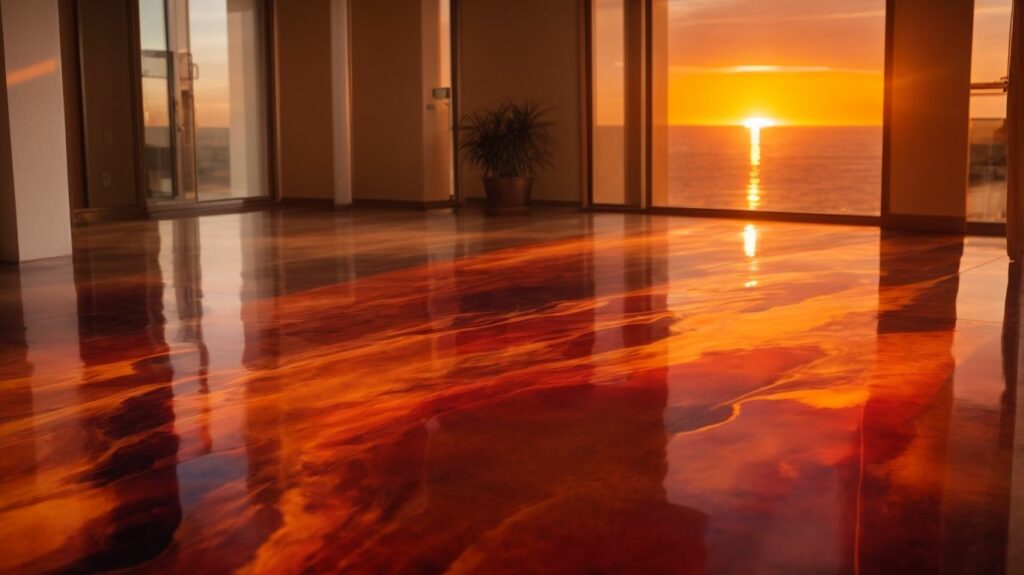
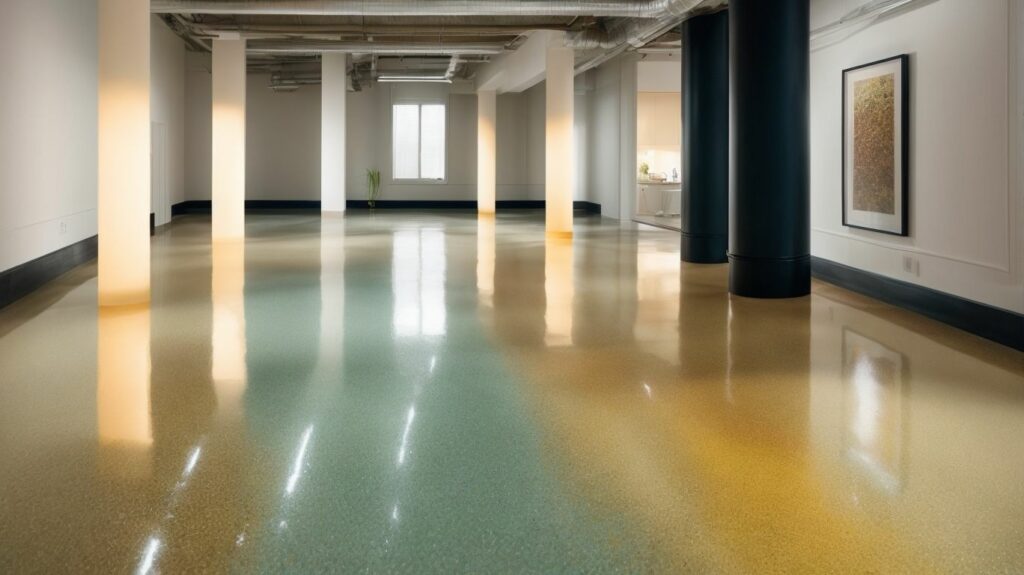
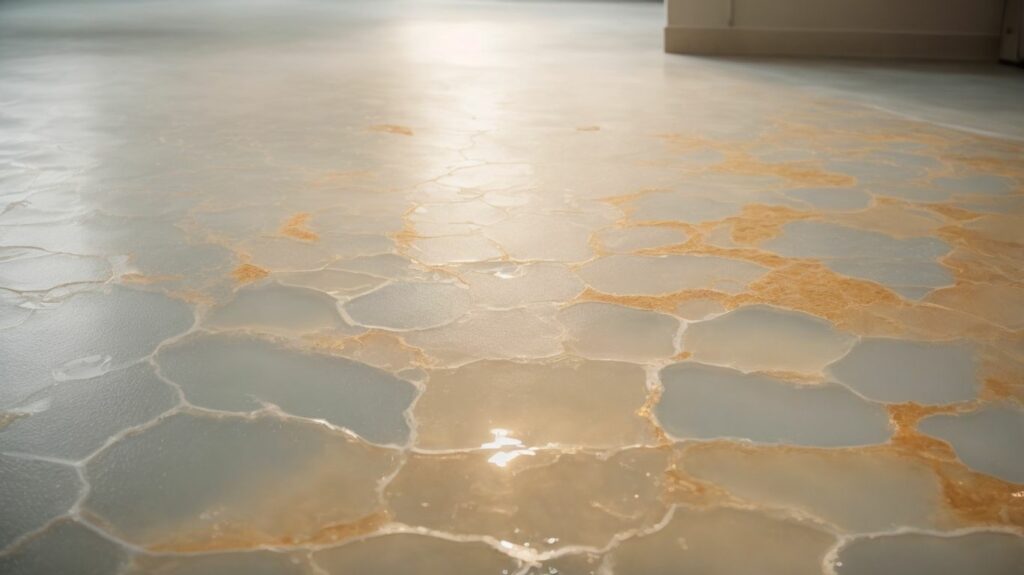
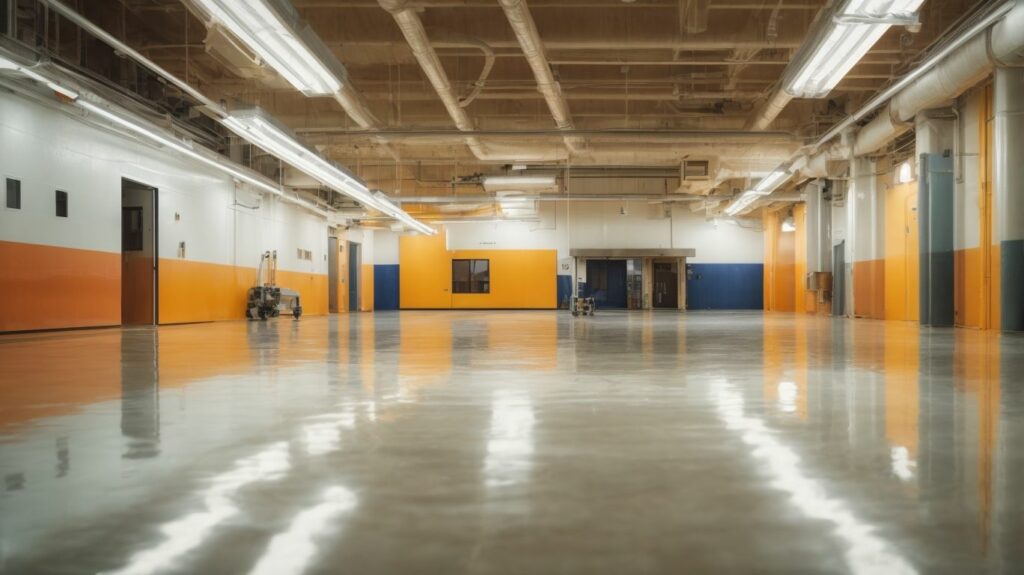

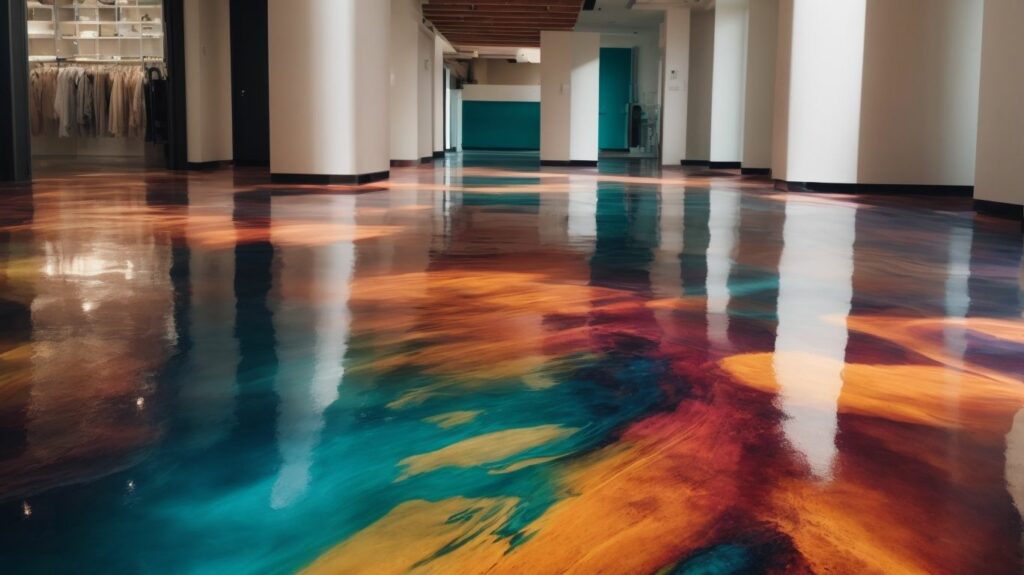

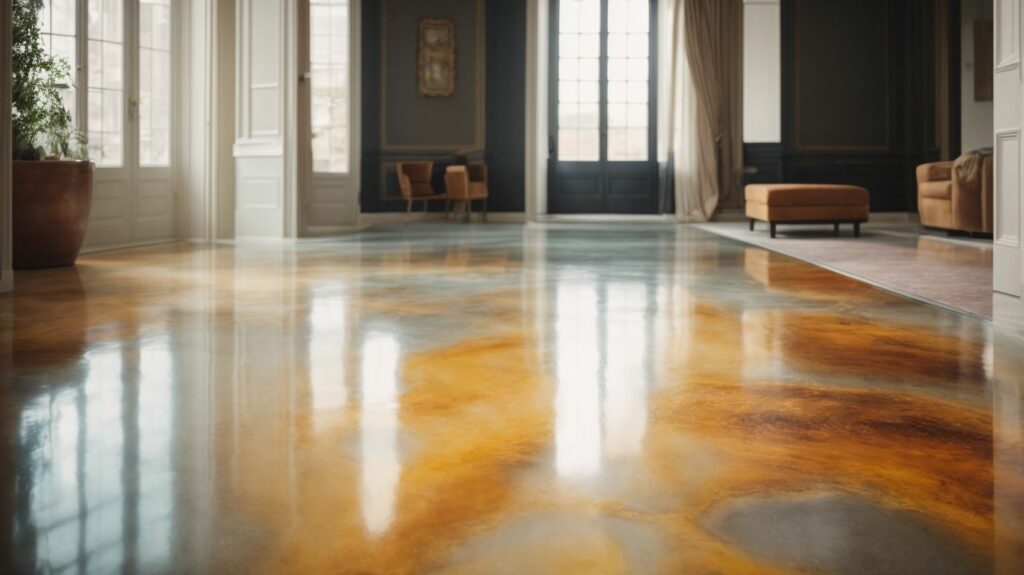
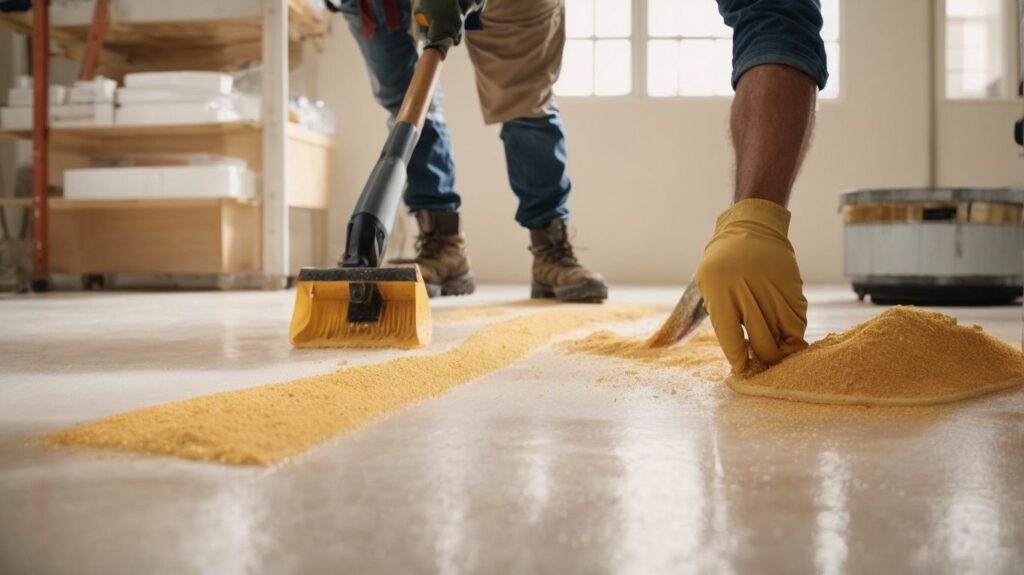
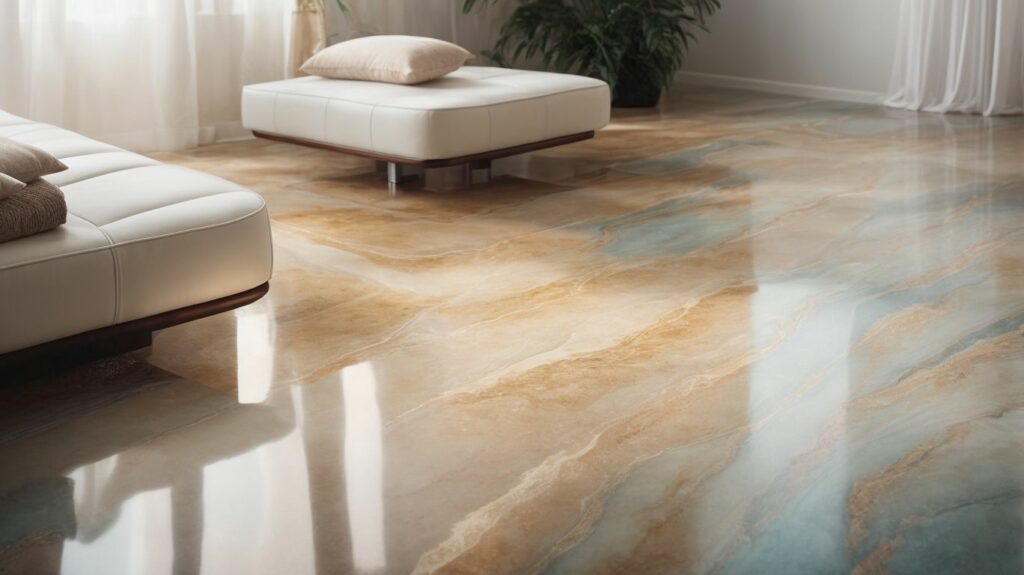
We Aim To Reply To All Enquiries With-in 24-Hours